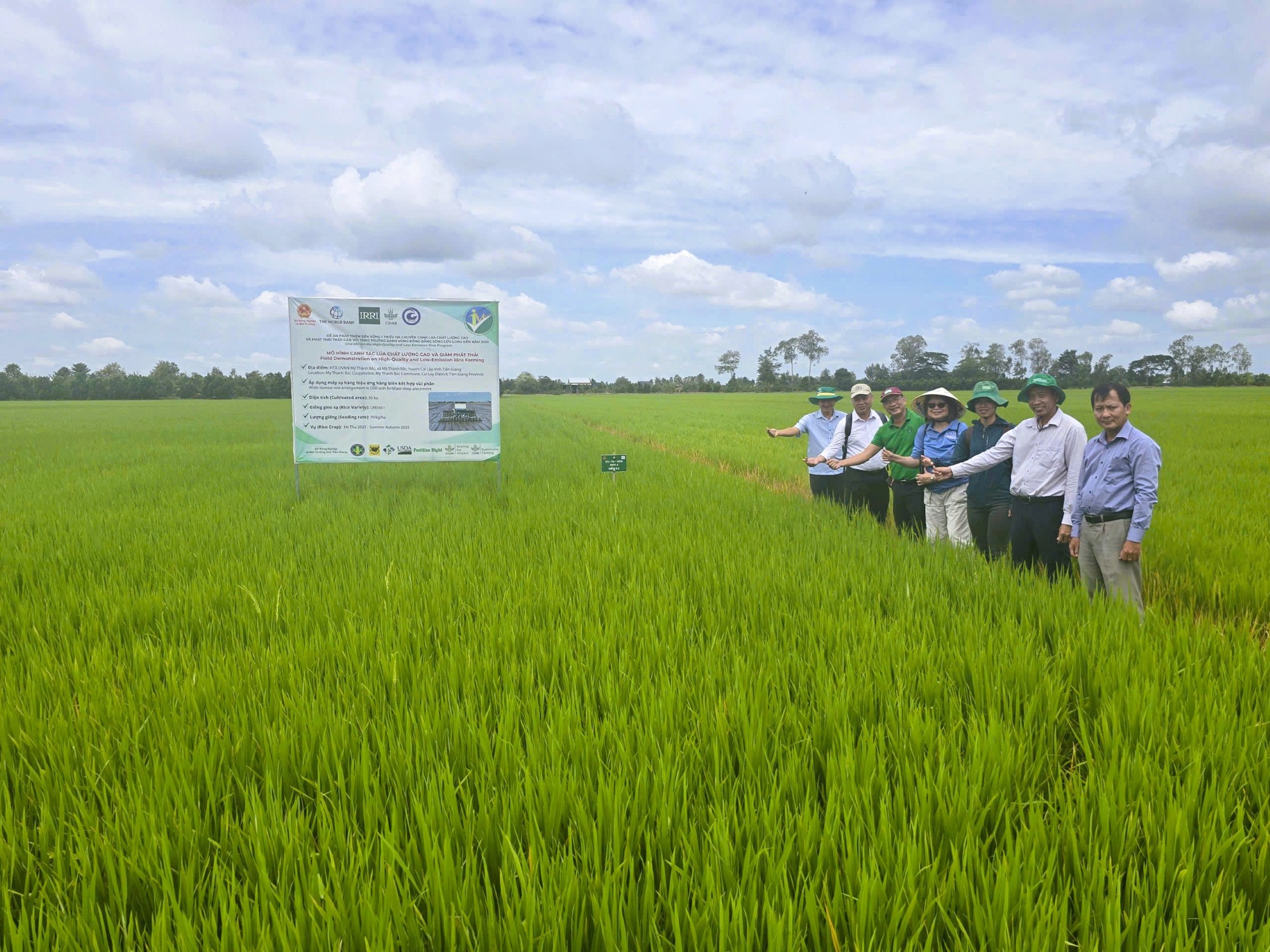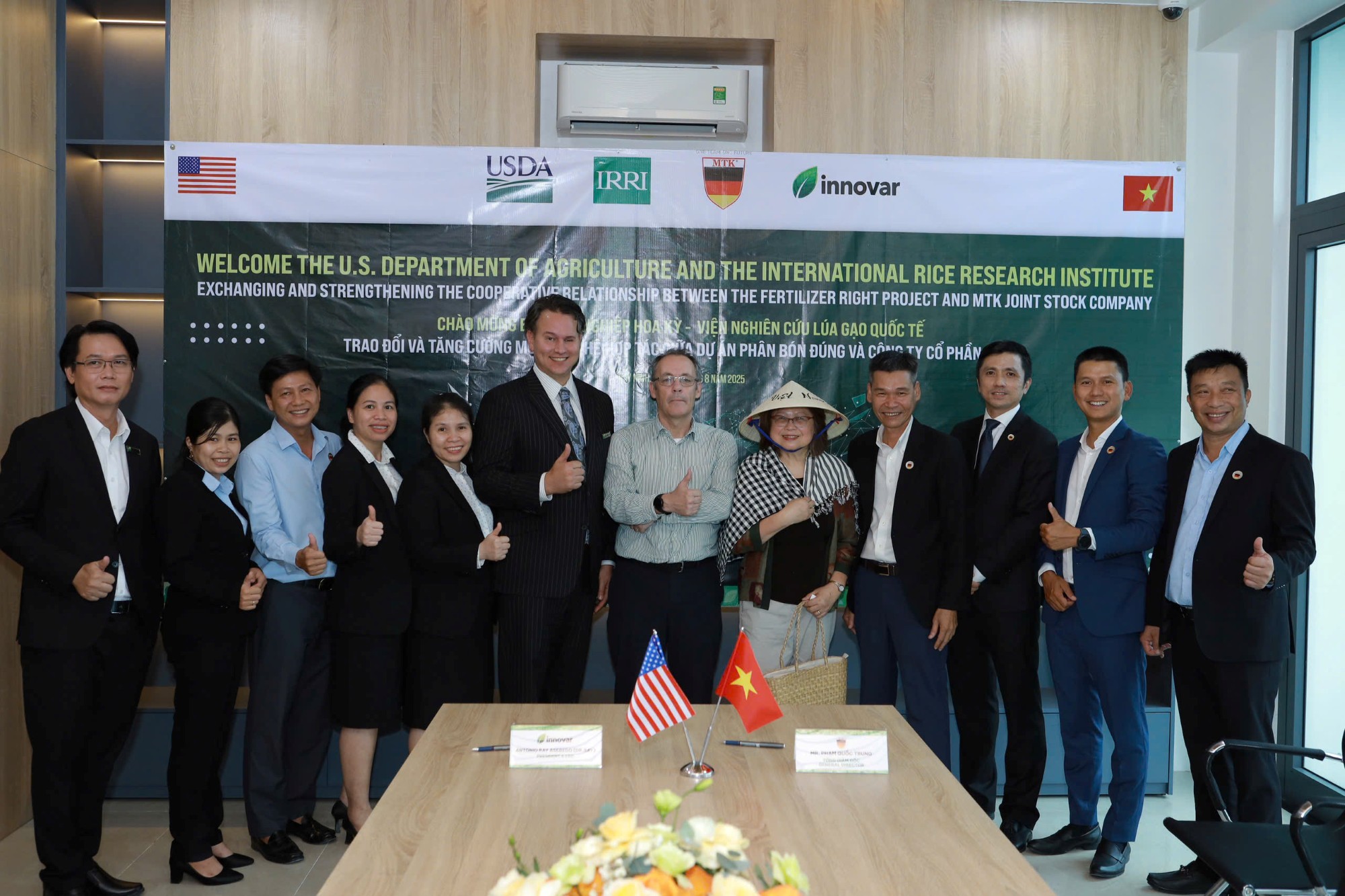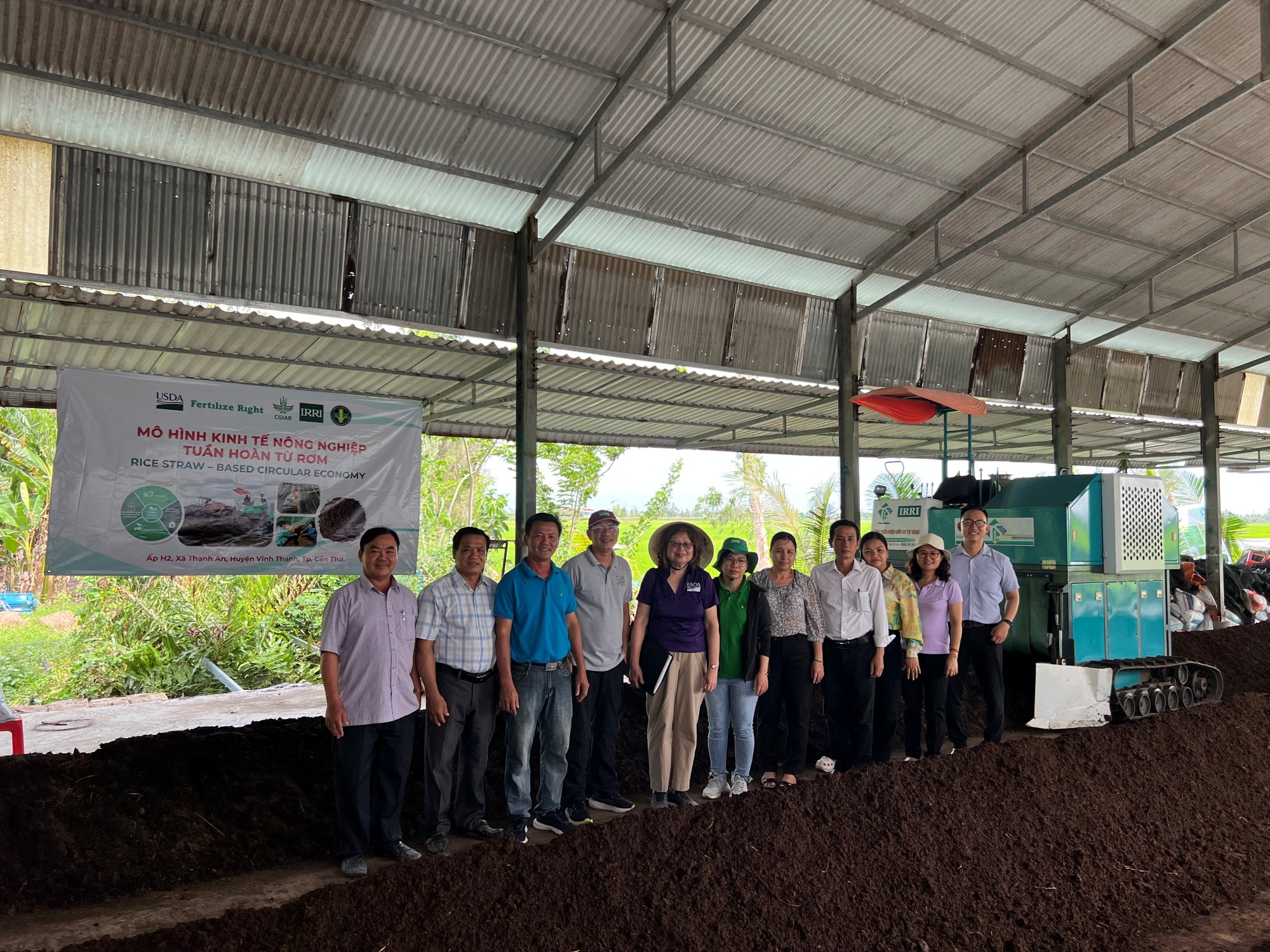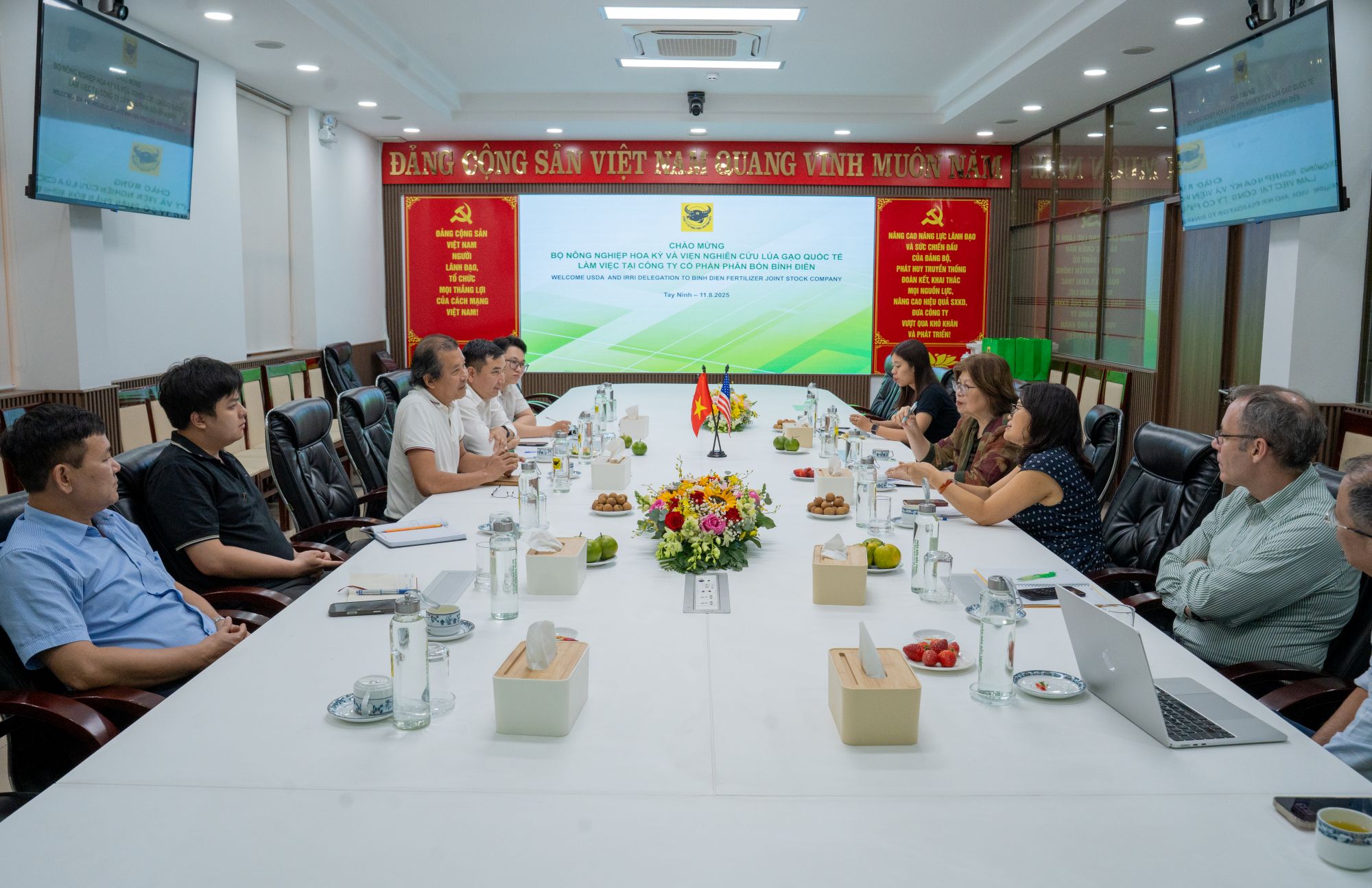USDA and IRRI mission advances Fertilize Right for sustainable rice farming in Vietnam

CAN THO, Vietnam — A delegation from the United States Department of Agriculture (USDA), led by Agricultural Counselor Ralph Bean and "Fertilize Right" Project Manager Dr. Clemen Gehlhar, recently completed a working visit to Vietnam's Mekong Delta from August 11-14, 2025. The mission highlighted the significant progress of the "Fertilize Right" project in promoting innovative, sustainable rice production.
The four-year USDA-funded project, running from 2024 to 2027, aims to enhance fertilizer efficiency, reduce chemical use, and increase farmer income. Being implemented by the International Rice Research Institute (IRRI) and the Department of Crop Production and Plant Protection of the Ministry of Environment and Agriculture, the project's strategy involves scaling up six core technologies, including Site-Specific Nutrient Management, mechanized direct seeding combined with fertilizer deep placement, innovative fertilizers, rice straw composting, and digital tools like Easy Farm and the e-Extension Lua Viet integrated Rice Crop Manager platform.
During the visit, a midterm evaluation revealed that key partners—including government agencies, industry associations, farmer cooperatives, and private companies—have progressed from acquiring basic knowledge to actively planning or piloting these innovations. This places most partners at competency levels 2 and 3, demonstrating strong engagement.

Local partners and collaborations
During the visit, the delegation met with several local government and industry partners, including the National Agricultural Extension Center (NAE) and the Vietnam Rice Industry Association (VIETRISA). NAEC has a strong collaboration with IRRI and has received project support for creating training materials for the 1-Million-Hectare high quality and low emission rice (1mHa) program, on topics like soil, nutrient management, and mechanized direct seeding. The Center is committed to collaborating on e-extension dissemination and relevant extension activities and will work with IRRI on a detailed plan.
VIETRISA expressed its appreciation for the USDA and the project, stating that its goals are very aligned with Vietnam's national strategy. VIETRISA's tasks include bridging value chain stakeholders and evaluating new projects, innovations, and technologies. It also focuses on value chain linkage models for scaling up the 1mHa program, which includes the 4Rs of nutrient stewardship: Right Source, Right Rate, Right Time, and Right Place. The association noted that the knowledge generated by the project is very important for Vietnam, as it helps improve farming practices and increase farmers' income.

Private partnerships drive progress
The success of the project is a testament to strong public and private sector collaboration. The delegation specifically met with MTK Fertilizer Joint Stock Company, a key partner since the project’s inception. Through training provided by the project, MTK’s leadership has developed a deep understanding of nutrient management, soil mapping, and composting technologies.
MTK’s General Director, Pham Quoc Trung, noted that the company has now achieved level 3 of the project's capacity assessment, demonstrating its ability to apply these practices and create a detailed implementation plan. He committed to integrating the project's regulations into business operations and organizing more field workshops to help farmers access new technologies.
In a major development, MTK signed a strategic cooperation agreement with its U.S. partner, Innovar Ag, for the exclusive distribution of specialized fertilizer products in Vietnam. These products feature active ingredients designed to inhibit nitrogen loss, provide precise nutrients, and introduce beneficial microorganisms to the soil—all of which directly support the goals of the "Fertilize Right" project.
Dr. Gehlhar praised the effective collaboration among all stakeholders, emphasizing that this partnership model is crucial for achieving the project’s goals by 2026 and supporting Vietnam’s broader climate action commitments.
